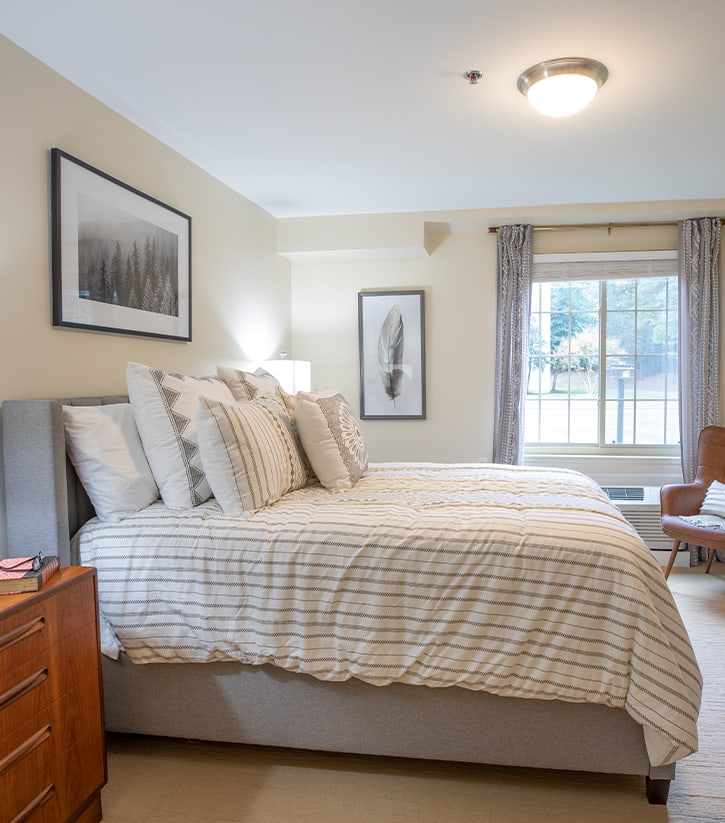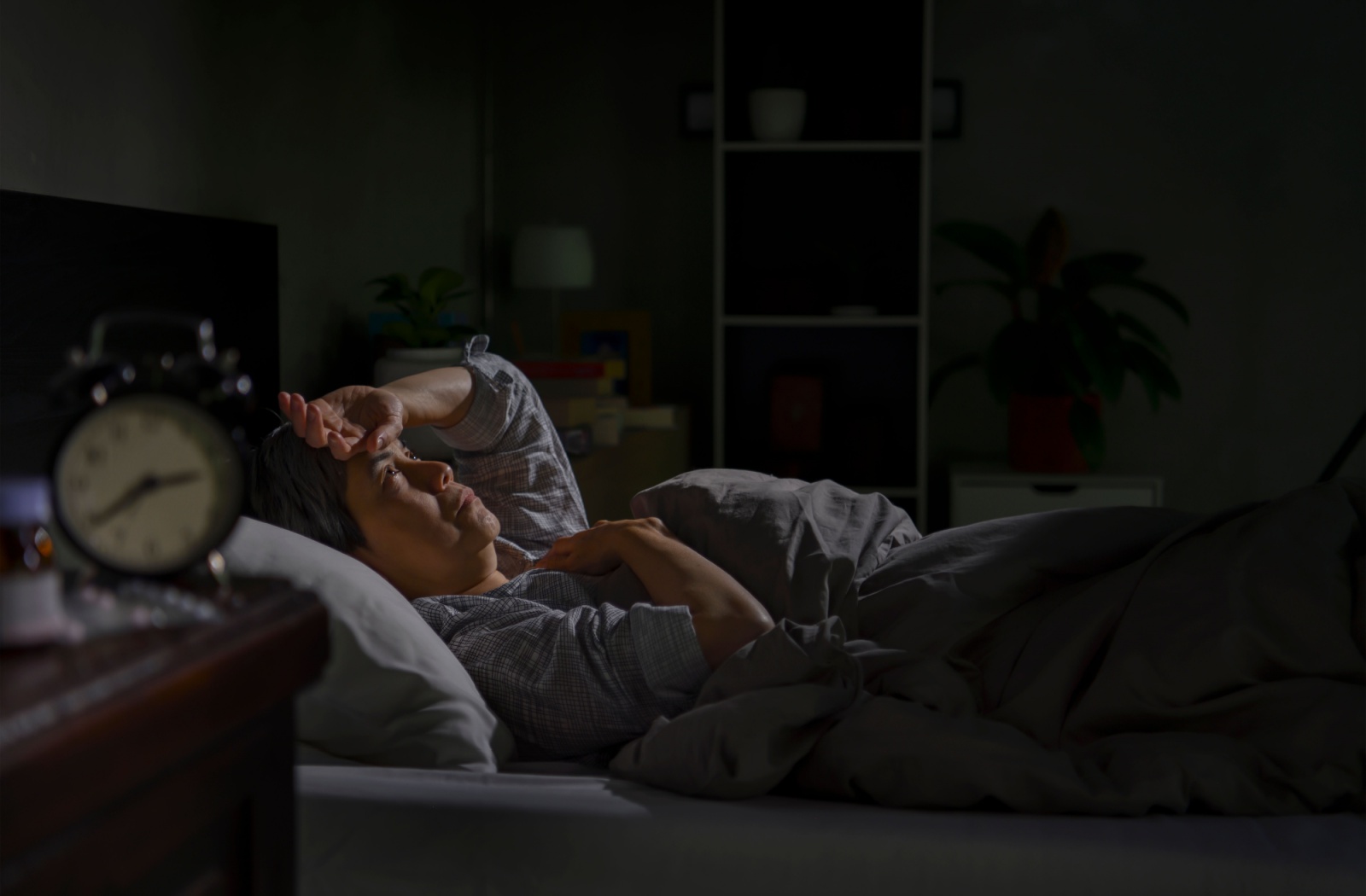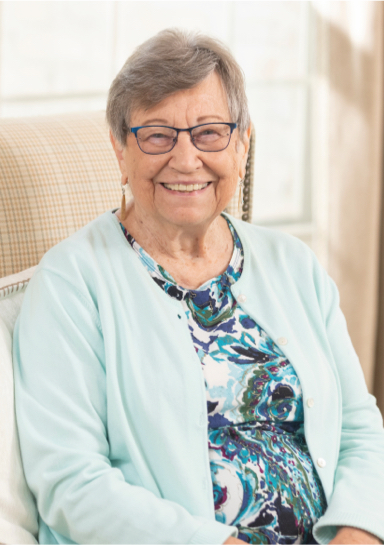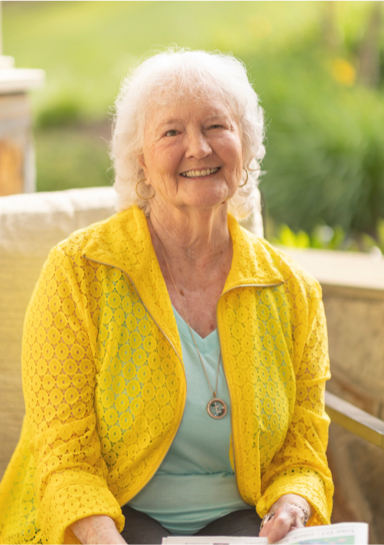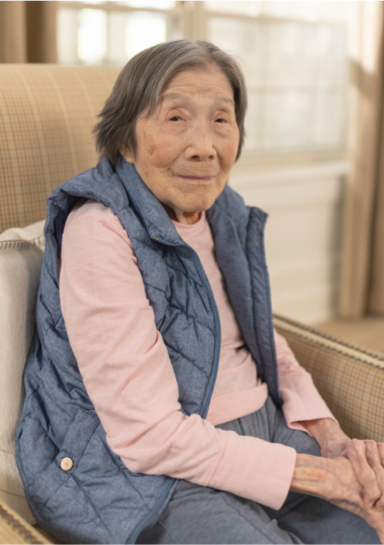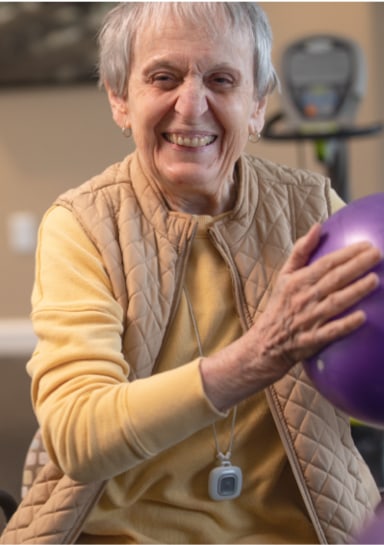Key Takeaways
- Insomnia is a common issue among seniors, often caused by factors such as chronic pain, medication side effects, or changes in sleep patterns due to aging.
- Prioritizing quality sleep is essential for the overall well-being and health of seniors.
- Senior living communities, such as The Barrington at Hioaks, part of Retirement Unlimited, Incorporated (RUI), are dedicated to addressing sleep challenges to help residents thrive in a supportive and comfortable environment.
Insomnia in Seniors
Sleep problems become more common with age, affecting nearly half of adults aged 65 and older. If your aging loved one struggles to sleep, you’re not alone. Senior insomnia can be caused by factors like chronic pain, medication side effects, and changes in sleep patterns as we age. Understanding these root causes can help you provide better support and guide them toward restful nights.
What Is Insomnia?
Insomnia is more than just the occasional restless night. It’s a persistent sleep disorder characterized by difficulty falling asleep, staying asleep, or waking up too early without being able to return to sleep. For seniors, insomnia can significantly impact their daily activities, mood, and overall health.
Unlike younger adults who might experience temporary sleep disruptions, seniors often face chronic insomnia that requires careful attention and targeted solutions.
What Causes Insomnia in Seniors?
Insomnia in seniors can stem from a variety of underlying factors, including both physical and psychological causes. Understanding these causes is crucial to effectively addressing and managing the condition.
Age-Related Changes
Our bodies naturally change as we age, and these changes directly impact our sleep patterns. Seniors produce less melatonin, the hormone that regulates sleep-wake cycles. Their circadian rhythms also shift, causing them to feel tired earlier in the evening and wake up earlier in the morning.
Additionally, seniors spend less time in deep sleep stages, making them more susceptible to nighttime disruptions. These natural changes don’t have to mean poor sleep quality, but they do require adjustments to sleep habits and environments.
Medical Conditions
Many health conditions common in older adults can interfere with sleep. Arthritis pain, heart disease, diabetes, and respiratory issues like sleep apnea all contribute to sleep difficulties. Restless leg syndrome affects up to 15% of seniors, causing uncomfortable sensations that make it challenging to fall asleep.
Chronic pain conditions are particularly disruptive, as discomfort can make finding a comfortable sleeping position nearly impossible. Even conditions like gastroesophageal reflux disease (GERD) can cause nighttime symptoms that interrupt sleep.
Medications
Prescription medications can play a significant role in senior sleep problems. Blood pressure medications, antidepressants, and medications for heart conditions can all affect sleep patterns. Some medicines are stimulating and should be taken earlier in the day, while others may cause drowsiness or frequent urination.
It’s important to review all medications with healthcare providers, as timing adjustments or alternatives might improve sleep quality without compromising treatment effectiveness.
Lifestyle Choices
Daily habits greatly influence nighttime rest. Excessive daytime napping, irregular sleep schedules, and lack of physical activity all contribute to insomnia. Caffeine consumption, especially later in the day, can keep seniors awake long past their desired bedtime.
Large meals close to bedtime, alcohol consumption, and excessive screen time before sleep can also disrupt natural sleep patterns.
Environmental Factors
The sleeping environment plays a crucial role in sleep quality. Temperature extremes, excessive noise, uncomfortable bedding, or too much light can all prevent restful sleep. For seniors living in shared spaces or care communities, adjusting environmental factors becomes particularly important.
What Is the Role of Caregivers and Family Support?

Caregivers and family members play a key role in supporting seniors’ sleep health. By understanding individual needs and creating a supportive environment, they can help improve sleep quality.
Spotting Sleep Problems
Caregivers are often the first to notice signs of sleep issues, such as daytime fatigue, mood changes, trouble focusing, or complaints about poor sleep. A sleep diary can help track patterns and triggers. Quality sleep is possible at any age with the proper support.
Creating a Sleep-Friendly Environment
Simple changes can make a big difference. Keep the bedroom cool, quiet, and dark, with comfortable mattresses and pillows. Blackout curtains or white noise machines can also help.
With the right strategies, better sleep is possible. Start small and build habits that lead to restful nights.
What Are the Best Treatments and Healthy Sleep Practices for Seniors?
As we age, getting quality sleep is essential, as it supports both physical and emotional health. This section highlights practical strategies to help seniors maintain healthy sleep patterns.
- Daily Exercise: Regular physical activity improves sleep. Morning or afternoon workouts are ideal, as evening exercise may be too stimulating. Even light activities, such as walking or chair exercises, can help.
- Diet and Nutrition: Consuming light evening meals at least three hours before bed can aid sleep. Limit caffeine to the mornings, avoid alcohol, and try a small snack, such as a banana or warm milk, before bed.
These small, simple changes can lead to better sleep quality and overall well-being.
When Should You Seek Professional Help?
If sleep issues persist despite lifestyle adjustments, consulting medical professionals is essential. Experts can diagnose and treat underlying conditions, such as sleep apnea or restless leg syndrome, and recommend tailored solutions for improved sleep.
At The Barrington at Hioaks by RUI, we provide a supportive environment where residents can benefit from our dedicated team’s collaboration with healthcare professionals. From promoting relaxation routines to addressing specific health concerns, we’re here to ensure residents achieve restful, quality sleep while maintaining their health and independence.
Creating the Life You Deserve
Sleep challenges don’t have to define aging. At The Barrington at Hioaks, we provide an environment designed to foster restful nights and peaceful days.
From comfortable accommodations to personalized care and wellness programs, we create a setting where seniors can thrive physically, mentally, and emotionally. Contact us today to see how our accommodations can suit your needs.
